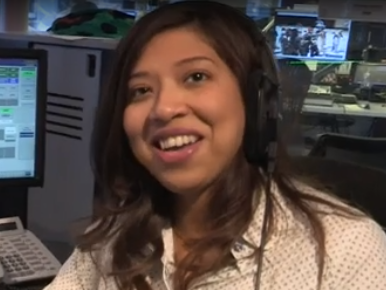
The BBC has appointed its first gender and identity reporter as part of its recent expansion of the World Service.
Megha Mohan, who is currently a senior journalist with BBC Stories, will join a specialist unit within BBC World Service in September and look in-depth at issues including LGBT+ experiences, faith and ethnicity.
A BBC spokesperson said: “The specialist role will cover stories about gender and identity which could be around people’s faith, ethnicity, sexuality and LGBT+ experiences across the globe.
“We know that gender and identity issues are of great interest, particularly to our younger audiences around the world, and this role will be dedicated to reporting on them.
“The role will be part of a specialist unit within the BBC World Service making leading investigative, exploratory journalism that contextualises the themes and issues behind news stories and presents them in exciting ways for our global audience to interact with.”
Mohan’s work will appear across the BBC World Service’s languages services on TV, on radio and online.
Announcing her appointment on Twitter, Mohan said she was “thrilled” to take on the role and thanked the “brilliant women” journalists who provided her with support during the application process.
She has previously written stories which may come under the gender and identity brief, including about her personal experience of being unable to mourn her grandmother in a Hindu temple with the rest of her family because she was forbidden to do so while she was on her period.
Mohan is also a co-founder of The Second Source, a scheme set up by female journalists to match young women with more experienced mentors and help them in the early years of their media careers.
The BBC denied reports that the creation of the gender and identity reporter related in any way to its ongoing gender pay gap and equal pay issues.
The corporation’s 12 highest stars are all men, according to the BBC’s annual report released earlier this month.
It came soon after former BBC China editor Carrie Gracie secured an apology from the corporation in which it admitted she had been underpaid compared to other male international editors.
The BBC has reduced its median gender pay gap by almost a fifth in the past year to 7.6 per cent in the past year, well below the national average of 18.4 per cent, after concerted efforts to have gender pay parity by 2020.
A spokesperson added: “The appointment is not related to the BBC’s record on gender pay, which is better than almost all other broadcasters and many other organisations in the media industry.”
Picture: BBC
Email pged@pressgazette.co.uk to point out mistakes, provide story tips or send in a letter for publication on our "Letters Page" blog

